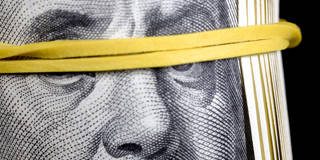No one should doubt the intellectual contributions of Chicago School luminaries like Milton Friedman, George Stigler, James Buchanan, and Robert Lucas to economics and political economy. Yet it is hard to imagine a body of work more antithetical to broad thinking about inequality and justice.
PRINCETON – Many people seem to be losing faith in capitalism, and with it, any faith they had in economists, who are seen as its apologists. The New York Times reporter Binyamin Appelbaum’s new book, The Economists’ Hour, raises many uncomfortable questions. Did economics take a wrong turn? Did those of us who do not subscribe to its Chicago School neoclassical variant nonetheless allow ourselves to be pushed too far in that direction? Would the world have been a better place if Cambridge economists had achieved more influence, and Chicago economists less? And, by Cambridge, I of course mean Cambridge, England.

PRINCETON – Many people seem to be losing faith in capitalism, and with it, any faith they had in economists, who are seen as its apologists. The New York Times reporter Binyamin Appelbaum’s new book, The Economists’ Hour, raises many uncomfortable questions. Did economics take a wrong turn? Did those of us who do not subscribe to its Chicago School neoclassical variant nonetheless allow ourselves to be pushed too far in that direction? Would the world have been a better place if Cambridge economists had achieved more influence, and Chicago economists less? And, by Cambridge, I of course mean Cambridge, England.